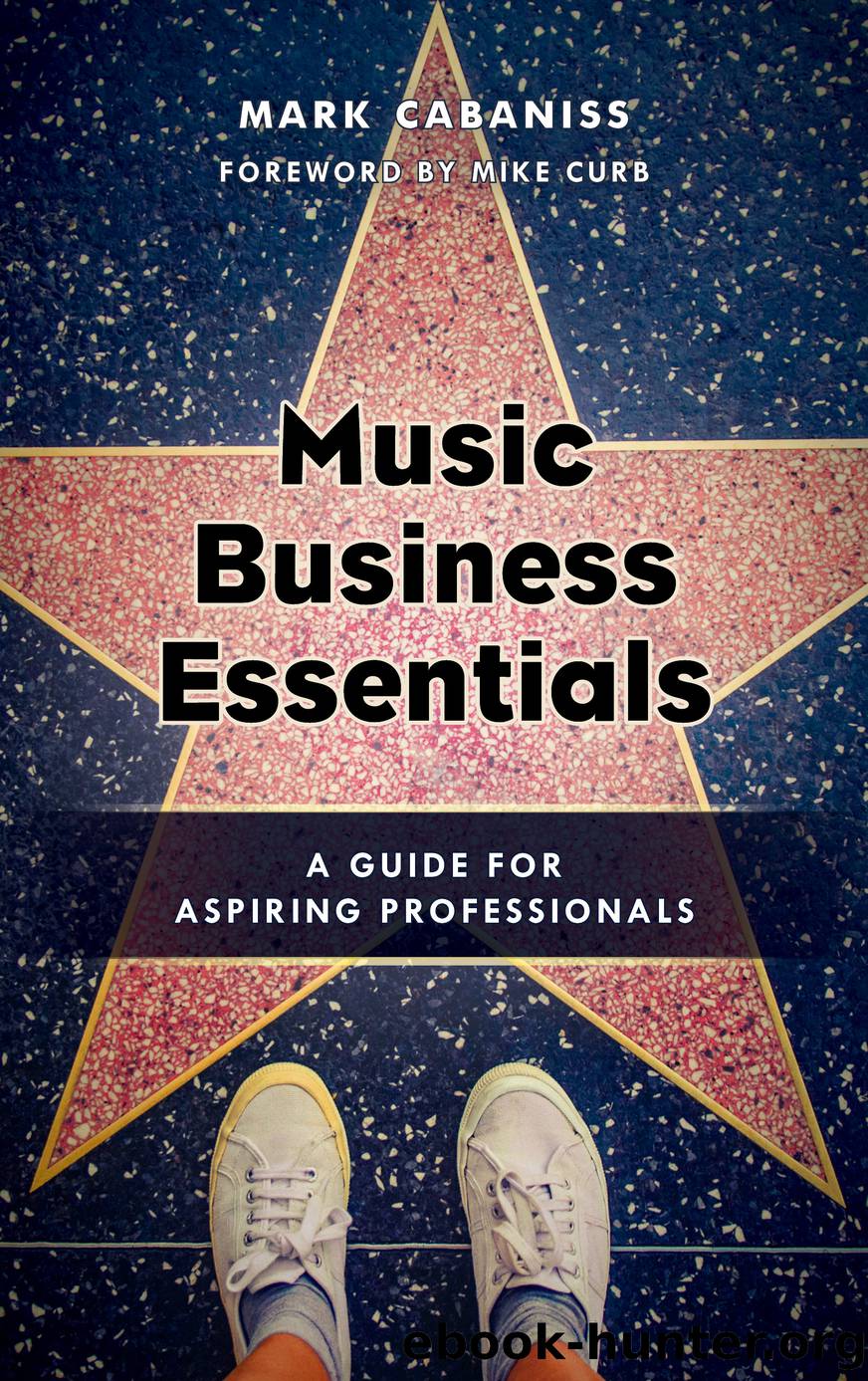Music Business Essentials by Cabaniss Mark;Curb Mike;

Author:Cabaniss, Mark;Curb, Mike; [Cabaniss, Mark]
Language: eng
Format: epub
Publisher: Rowman & Littlefield Publishers, Incorporated
Published: 2018-09-20T00:00:00+00:00
Types of Publishing Licenses
There are two major types of licenses that music publishers issue to people, companies, and organizations who want to use their songs: mechanical and synchronization licenses. Another significant license is a print license for those companies wishing to use a copyrighted song in music print format.
A mechanical license grants the rights to âreproduce and distribute copyrighted musical compositions (songs) on CDs, records, tapes, ringtones, permanent digital downloads, interactive streams and other digital configurations supporting various business models, including locker-based music services and bundled music offerings.â3
Most music publishers in the United States choose to have their mechanical rights administered by the Harry Fox Agency (HFA). Established in 1927 by the National Music Publishers Association (NMPA), HFA is the number-one provider of rights management, licensing, and royalty services in the U.S. music industry. They are primarily known for collecting and distributing mechanical royalties on behalf of music publishers.4
A synchronization license (or âsynchâ for short) is a music license granted by a copyright holder for use of a song in visual media (e.g., video, television, video games.).5
When it comes to the protection of a song, a copyright embodies two components: the song itself and the recording of that song (if, indeed, there is a recording made of the song, and of course, thereâs usually always a recording made). In chapter 3, we discussed the âbundle of rightsâ to which a copyright owner is entitled. But what about the company, person, or entity that owns the sound recording? Well, that entity (most often a record label) also has a copyright for the master recordingâseparate from the song copyright.6 This ownership of the master recording is not designated with a © but a . This stands for phonorecord.
When someone desires to publish a song in print (or digital print) format, a print license must be obtained from the copyright owner. The terms are usually that the copyright owner be paid a 12.5 percent royalty (of suggested retail price) for each copy of sheet music sold. Digital rates are higher, generally 50 percent of suggested retail price for each copy of music downloaded.
Download
This site does not store any files on its server. We only index and link to content provided by other sites. Please contact the content providers to delete copyright contents if any and email us, we'll remove relevant links or contents immediately.
| Biographies | Business |
| History & Criticism | Instruments |
| Musical Genres | Recording & Sound |
| Reference | Songbooks |
| Theory, Composition & Performance |
The Goal (Off-Campus #4) by Elle Kennedy(13674)
Kathy Andrews Collection by Kathy Andrews(11838)
Diary of a Player by Brad Paisley(7583)
Assassin’s Fate by Robin Hobb(6223)
What Does This Button Do? by Bruce Dickinson(6207)
Big Little Lies by Liane Moriarty(5805)
Altered Sensations by David Pantalony(5106)
Pale Blue Dot by Carl Sagan(5011)
Sticky Fingers by Joe Hagan(4203)
The Death of the Heart by Elizabeth Bowen(3624)
The Heroin Diaries by Nikki Sixx(3551)
Confessions of a Video Vixen by Karrine Steffans(3311)
Beneath These Shadows by Meghan March(3308)
How Music Works by David Byrne(3272)
The Help by Kathryn Stockett(3150)
Jam by Jam (epub)(3093)
Harry Potter 4 - Harry Potter and The Goblet of Fire by J.K.Rowling(3074)
Computational Linguistics and Intelligent Text Processing: 20th International Conference, CICLing 2019 La Rochelle, France, April 7â13, 2019 Revised Selected Papers, Part I by Alexander Gelbukh(2995)
Strange Fascination: David Bowie: The Definitive Story by David Buckley(2872)
